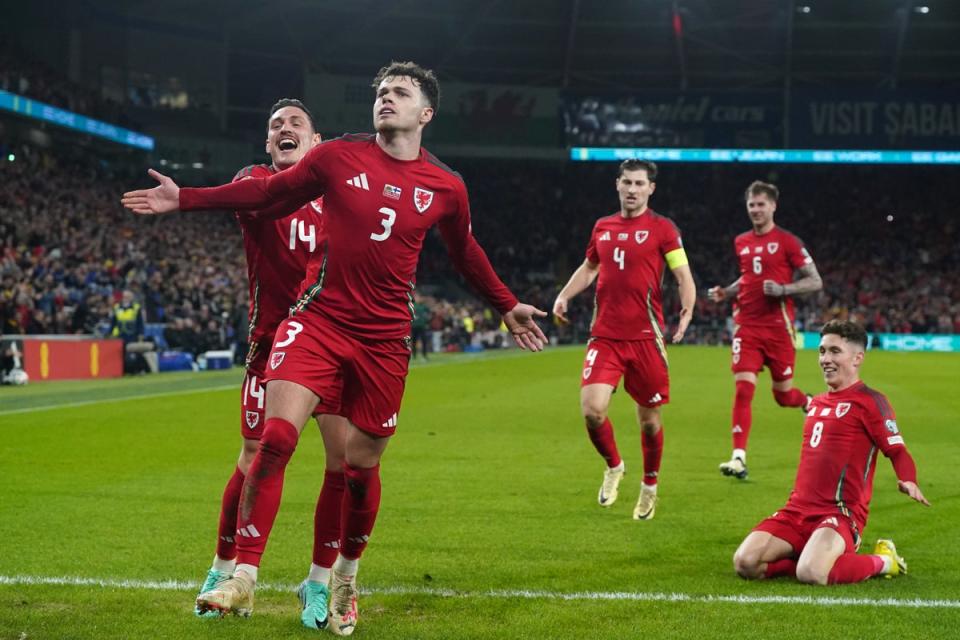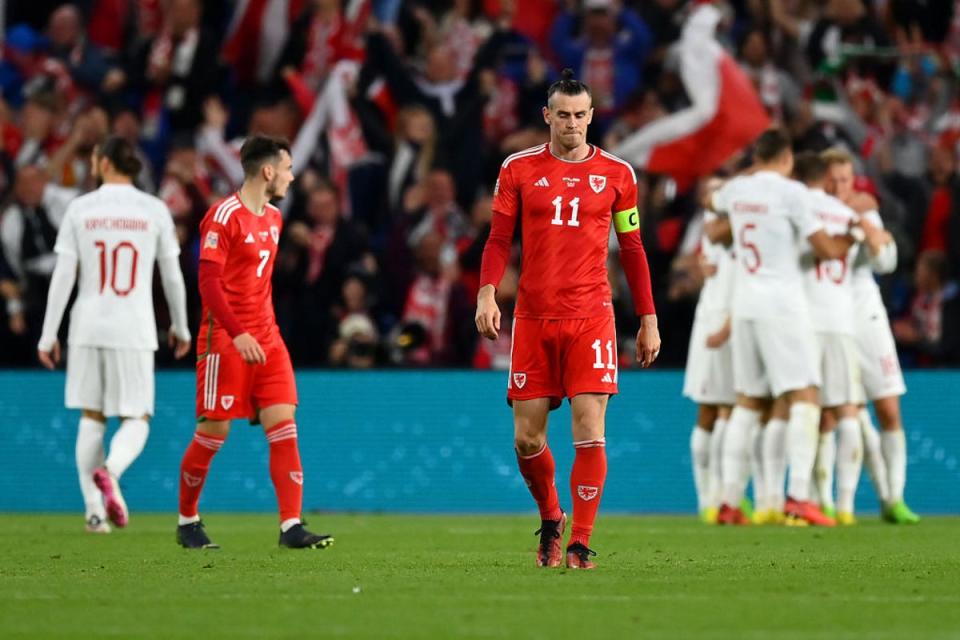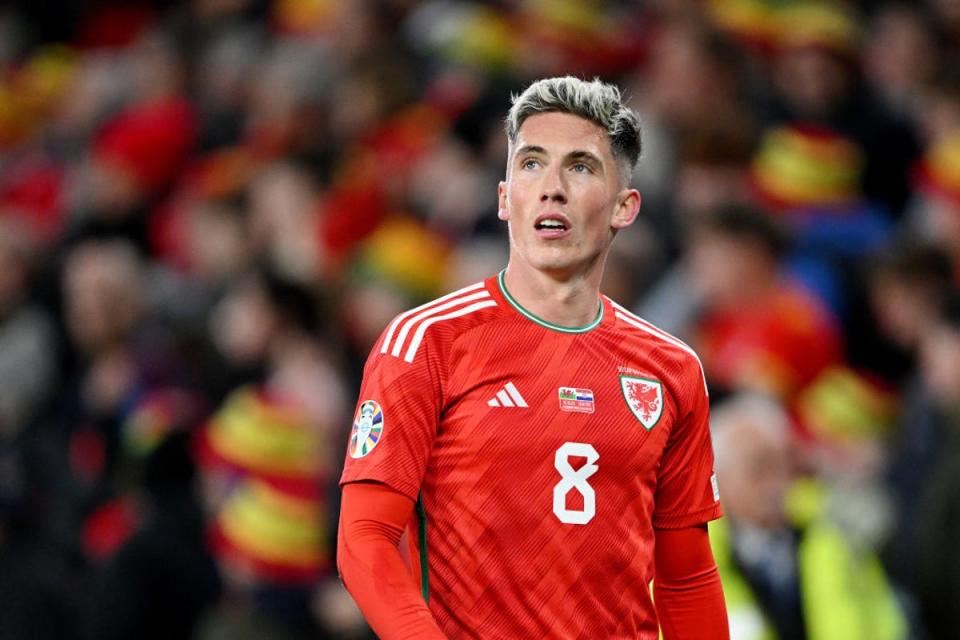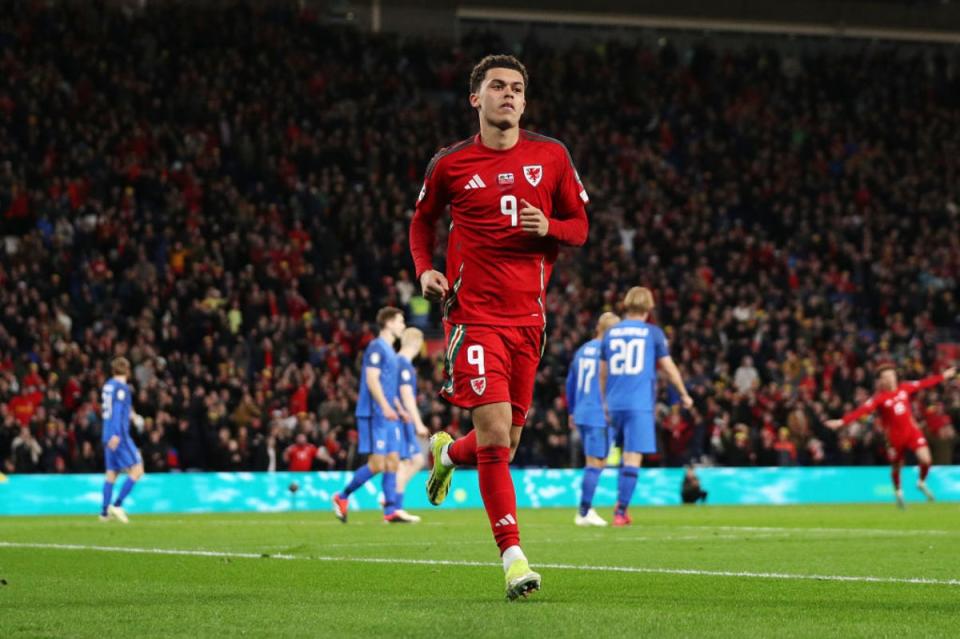The long, complicated and confusing route to Euro 2024 comes to a head on Tuesday evening, with three play-off places to be settled and Wales hoping they can claim one, facing Poland at the Cardiff City Stadium and benefiting from the confidence generated. by their 4-1 thrashing of Finland in the semi-finals last week. A similar performance this time could seal a third European Championship appearance in a row and a fourth tournament in eight years for the Dragons.
Yet it must be recognized that the task remains large; even a near-perfect performance could produce two chances that fall in Poland’s favour. If they happen to be in Robert Lewandowski’s shoes, even if his powers diminish, he can make the rest of the match irrelevant.
But despite everything they must watch out for the Barcelona striker and his teammates, Wales will be confident in their own play, their own approach in the pursuit of victory – and there are two particularly good reasons for that.
The first big and obvious advantage that Wales have is that they are on home soil. This goes beyond just being in a comfortable environment – that would be a bonus for almost any country. For Wales it was more. The partisan home crowd is capable of greatness and can sometimes level the field with those who are nominally a better team – at least during match periods and certainly from the start. Home comforts alone can’t bring victory, but they can certainly help the hosts settle in. A strong start can be crucial.
Since November 2022, Wales have lost just once at home – the surprise defeat to Armenia in qualifying – and even in that match Wales took the lead. In the full two years since Tomas Soucek scored after half an hour to put the Czech Republic ahead, Armenia were the only country to break the Dragons’ backline before the half-time whistle blew… until Teemu Pukki did. Thursday.
Even that was when Wales were two up and in stoppage time.


The Netherlands and England both needed 50 minutes to score, albeit the latter in Wales’ “home match” in Qatar. Turkey took 70, Croatia 75. Iran also took 90 minutes at the World Cup and then scored twice. Cardiff have generally been a stronghold of resistance, giving the team time to define their platform and figure out a way to do damage themselves.
But even beyond Wales’ stopping power lies Poland’s inability to win on the road.
To use a decidedly non-industry standard term to describe their away form over the past five years: they’ve been rubbish.
Since 2020, their 18 away matches have produced just five wins. And four of them came over San Marino, Albania, Andorra and the Faroe Islands – to put it bluntly: hardly worth mentioning as a result.
There is only one scoreline that goes in their favor, and very much against Tuesday night’s hosts: September 2022 in the Nations League, Wales 0 Poland 1.


Although results have generally improved under Michal Probierz, they have still lost away from home to Moldova and Albania in the last nine months. They have only beaten the Faroe Islands since beating Wales a year and a half ago. That match, that outcome, will undoubtedly form the basis of Poland’s approach to the play-off final, perhaps not entirely tactically, but certainly in the build-up to mind games and building a mentality within their squad.
Rob Page is unlikely to pay too much attention to it.
Apart from the fact that it was 18 months ago, Wales’ backbone that night bore little resemblance to that of the game against Finland. Rhys Norrington-Davies has not won a cap since that game, while at the other end of the back three was Ben Cabango, who has just seven senior caps in total. Doing the double twist in midfield was Dylan Levitt and Joseff Morrell, both decidedly at best in second place to Page.
The fact that Ben Davies, Chris Mepham and Ethan Ampadu in particular fill three of these roles adds 180 caps and much more top experience and quality to the Welsh ranks, a big difference maker when it comes to dealing with strikers at international level.
That brings us to Wales’ second positive: the Brennan Johnson-Harry Wilson combination.


Page could opt to add a central option as Poland tends to play 3-5-2 rather than 3-4-3, but the three-pronged attack worked well against Finland, giving the Dragons a given outlets in wide areas and the fluid trio switch in attack, drift centrally or into channels and they all score or assist.
The third part of that triumvirate, David Brooks, was also excellent – a goal and an assist to his name in an hour on the pitch – but Wilson and Johnson looked particularly neat with their connection to the left channel, their willingness to switch roles and making it difficult for defenders to follow them.
It just so happens that in Poland’s lineup their right channel looks the weakest, in terms of mobility and defensive resilience: Przemyslaw Frankowski at wing-back and Jan Bednarek behind him on the right of a back three. The former is a threat going forward and certainly works hard, but is hardly known for his tenacity or accuracy in the challenge. Against a double dribble-happy threat across the ground, the spaces behind and beside him are a key area for Wales to focus on. Bednarek, too, is better as a ballplayer from the back end rather than someone who is comfortable being dragged to the sideline or has the speed on the ground to track runners coming past him.


Getting Wilson going and Johnson back in the lead should be Page’s priority, especially if Wales are forced to counter-attack after losing the midfield battle.
That’s where their chances can come from – and, coincidentally or not, that’s where Estonia’s consolation came from last week.
The match works well in the Dragons’ favor in this part of the field; now their Premier League stars must come up with the last ball and finish to outperform what the Polish LaLiga legend can produce at the other end.